Social Entrepreneurship →
→
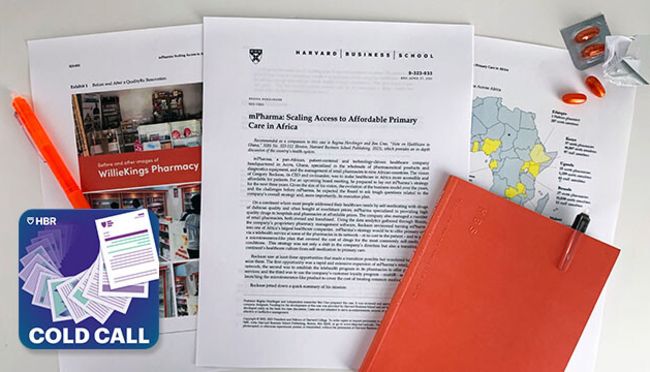
- 01 Aug 2023
- Cold Call Podcast
Can Business Transform Primary Health Care Across Africa?
mPharma, headquartered in Ghana, is trying to create the largest pan-African health care company. Their mission is to provide primary care and a reliable and fairly priced supply of drugs in the nine African countries where they operate. Co-founder and CEO Gregory Rockson needs to decide which component of strategy to prioritize in the next three years. His options include launching a telemedicine program, expanding his pharmacies across the continent, and creating a new payment program to cover the cost of common medications. Rockson cares deeply about health equity, but his venture capital-financed company also must be profitable. Which option should he focus on expanding? Harvard Business School Professor Regina Herzlinger and case protagonist Gregory Rockson discuss the important role business plays in improving health care in the case, “mPharma: Scaling Access to Affordable Primary Care in Africa.”
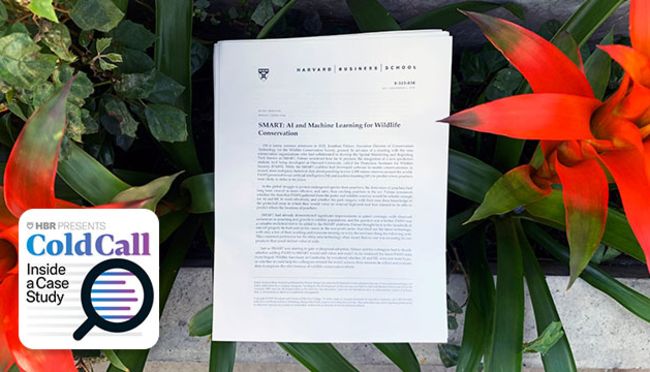
- 14 Mar 2023
- Cold Call Podcast
Can AI and Machine Learning Help Park Rangers Prevent Poaching?
Globally there are too few park rangers to prevent the illegal trade of wildlife across borders, or poaching. In response, Spatial Monitoring and Reporting Tool (SMART) was created by a coalition of conservation organizations to take historical data and create geospatial mapping tools that enable more efficient deployment of rangers. SMART had demonstrated significant improvements in patrol coverage, with some observed reductions in poaching. Then a new predictive analytic tool, the Protection Assistant for Wildlife Security (PAWS), was created to use artificial intelligence (AI) and machine learning (ML) to try to predict where poachers would be likely to strike. Jonathan Palmer, Executive Director of Conservation Technology for the Wildlife Conservation Society, already had a good data analytics tool to help park rangers manage their patrols. Would adding an AI- and ML-based tool improve outcomes or introduce new problems? Harvard Business School senior lecturer Brian Trelstad discusses the importance of focusing on the use case when determining the value of adding a complex technology solution in his case, “SMART: AI and Machine Learning for Wildlife Conservation.”

- 26 Oct 2022
- Research & Ideas
How Paid Promos Take the Shine Off YouTube Stars (and Tips for Better Influencer Marketing)
Influencers aspire to turn "likes" into dollars through brand sponsorships, but these deals can erode their reputations, says research by Shunyuan Zhang. Marketers should seek out authentic voices on YouTube, not necessarily those with the most followers.
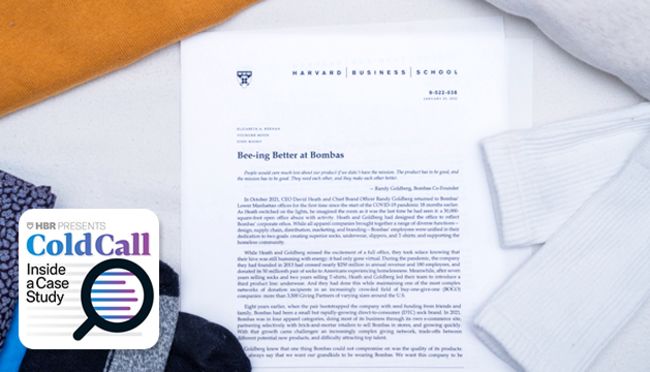
- 26 Jul 2022
- Cold Call Podcast
Can Bombas Reach New Customers while Maintaining Its Social Mission?
Bombas was started in 2013 with a dual mission: to deliver quality socks and donate much-needed footwear to people living in shelters. By 2021, it had become one of America’s most visible buy-one-give-one companies, with over $250 million in annual revenue and 50 million pairs of socks donated. Later, as Bombas expanded into underwear, t-shirts, and slippers, the company struggled to determine what pace of growth would best allow it to reach new customers while maintaining its social mission. Harvard Business School assistant professor Elizabeth Keenan discusses the case, "Bee-ing Better at Bombas."
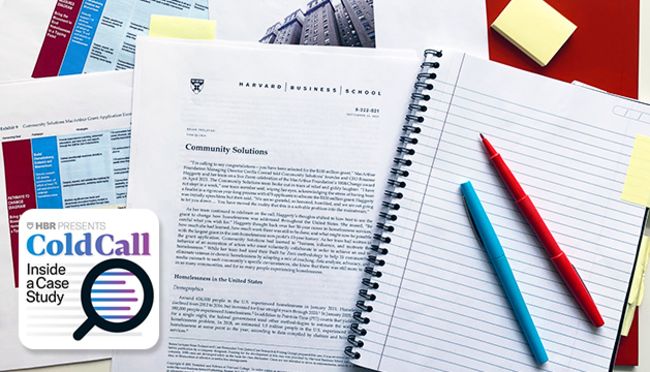
- 03 May 2022
- Cold Call Podcast
Can a Social Entrepreneur End Homelessness in the US?
Community Solutions is a nonprofit founded in 2011 by Rosanne Haggerty, with the ambitious goal of ending chronic homelessness in America. Its “Built for Zero” methodology takes a public health approach, helping communities across the US use better data collection and outreach to improve government processes and piecemeal solutions. In 2021, Community Solutions was awarded a $100 million grant from the MacArthur Foundation, and Haggerty and her team had to decide how to prioritize projects and spending to maximize the grant’s impact. Should they continue to focus on unhoused veterans or expand their work to include families and youth in need of housing? Senior Lecturer Brian Trelstad discusses Haggerty’s approach in his case, "Community Solutions."
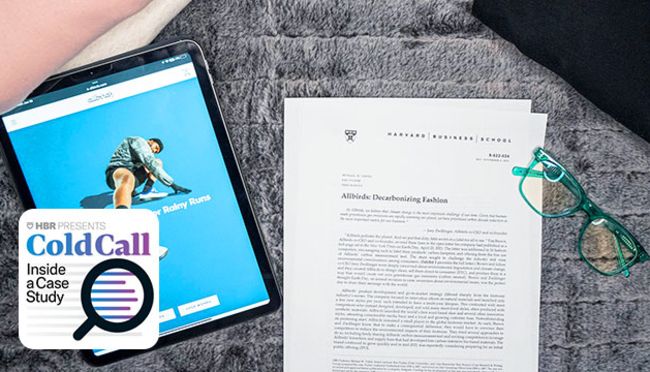
- 25 Jan 2022
- Cold Call Podcast
How Footwear Startup Allbirds is Decarbonizing Fashion
In 2021, the footwear startup Allbirds was extending its product range into apparel and expanding beyond its online store to open more retail stores around the world. It was also freely sharing its know-how and material innovations with its competitors to try to scale its efforts to decarbonize fashion, by substituting natural materials for conventional petroleum-based materials and leather. But the company also had to find ways to remain differentiated, based on design and comfort. Professor Mike Toffel and Allbirds co-founder and CEO Joey Zwillinger discuss the growing environmental impact of the fashion industry and how the company managed the tension between advancing its environmental mission and staying ahead of competitors in the case, Allbirds: Decarbonizing Fashion. Open for comment; 0 Comments.
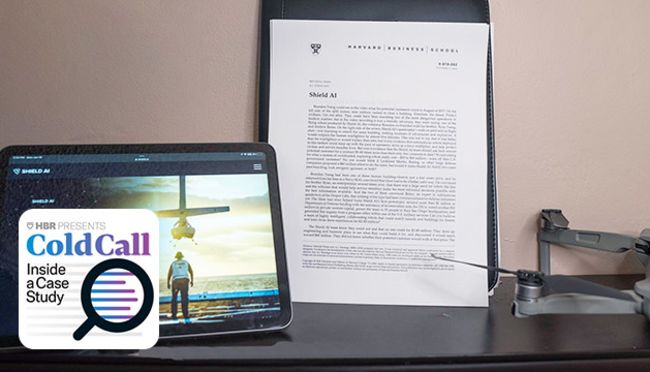
- 11 Jan 2022
- Cold Call Podcast
Can Entrepreneurs and Governments Team Up to Solve Big Problems?
In 2017, Shield AI’s quadcopter, with no pilot and no flight plan, could clear a building and outpace human warfighters by almost five minutes. It was evidence that autonomous robots could help protect civilian and service member lives. But was it also evidence that Shield AI—a startup barely two years past founding—could ask their newest potential customer, the US government, for a large contract for a system of coordinated, exploring robots? Or would it scare them away? Harvard Business School professor Mitch Weiss and Brandon Tseng, Shield AI’s CGO and co-founder, discuss these and other challenges entrepreneurs face when working with the public sector, and how investing in new ideas can enable entrepreneurs and governments to join forces and solve big problems in the case, “Shield AI.” Open for comment; 0 Comments.

- 10 Jan 2022
- Research & Ideas
How to Get Companies to Make Investments That Benefit Everyone
Want more organizations to give back to their communities? Frank Nagle says the success of open source software offers an innovative—and unexpected—roadmap for social good. Open for comment; 0 Comments.

- 29 Jul 2020
- Working Paper Summaries
Two Case Studies on the Financing of Forest Conservation
Case studies about The Conservation Fund and Sonen Capital highlight three broad lessons about fresh approaches to the ownership and management of forestland.

- 29 Apr 2020
- Book
The Key to Powerful Social Change: Small Villages
When institutions let us down, look for leadership outside of hierarchies, says Rosabeth Moss Kanter. These leaders "don’t wait to be asked; they just get moving." Open for comment; 0 Comments.

- 09 Mar 2020
- Working Paper Summaries
Impact Investing: A Theory of Financing Social Entrepreneurship
The author provides a formal definition of organizational sustainability and characterizes the situations in which a social enterprise should be sustainable. The analysis then delineates when an investment in a social enterprise delivers superior impact to a grant.
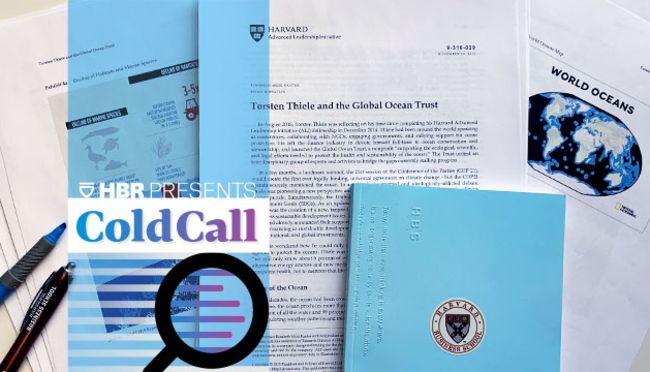
- 18 Feb 2020
- Cold Call Podcast
Global Ocean Trust: Protecting the Blue Planet in New Ways
Following a successful career in finance, Torsten Thiele has devoted himself to the challenging cause of ocean conservation and stewardship. Rosabeth Moss Kanter and Thiele discuss strategy for solving one of the world's biggest problems. Open for comment; 0 Comments.
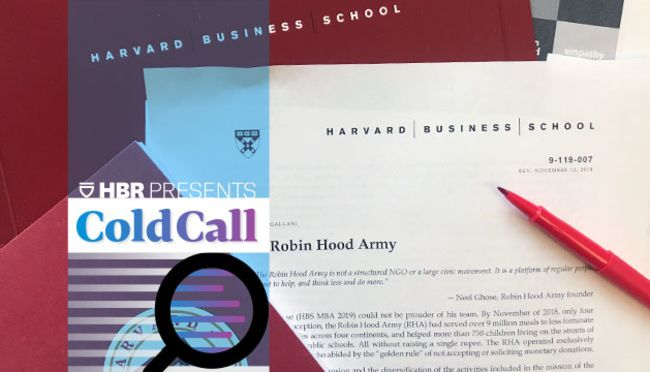
- 05 Nov 2019
- Cold Call Podcast
Can the Robin Hood Army Grow with Zero Financial Resources?
Over just a few years, volunteer-based Robin Hood Army had served meals to more than 9 million people around the world. Susanna Gallani discusses with founder Neel Ghose the challenges of growing while being a zero-funds organization. Open for comment; 0 Comments.

- 23 May 2019
- Book
These Entrepreneurs Take a Pragmatic Approach to Solving Social Problems
Using business to create social change has been at the center of many entrepreneurial efforts by Harvard Business School alumni. Howard Stevenson discusses their pragmatic approaches to overcoming long odds. Open for comment; 0 Comments.
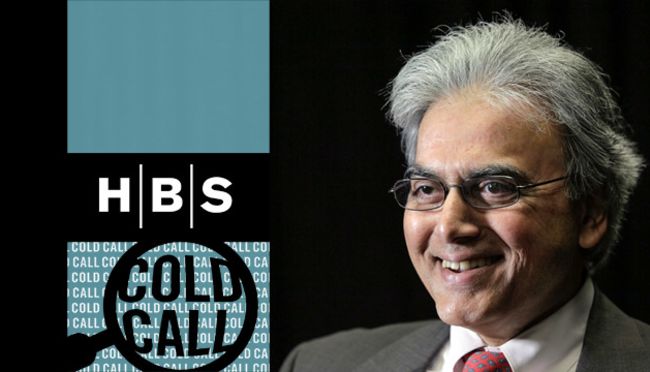
- 28 Jun 2018
- Cold Call Podcast
L.A. Philharmonic Shows the American Symphony Orchestra Isn’t Dead Yet
Like many American symphony orchestras, the Los Angeles Philharmonic seemed dying on the vine, unable to attract younger audiences or new sponsors. Then new CEO Deborah Borda came aboard with a plan to revive the brand. Rohit Deshpande discusses his case study on the turnaround. Open for comment; 0 Comments.

- 28 Aug 2017
- Research & Ideas
Should Industry Competitors Cooperate More to Solve World Problems?
George Serafeim has a theory that if industry competitors collaborated more, big world problems could start to be addressed. Is that even possible in a market economy? Open for comment; 0 Comments.
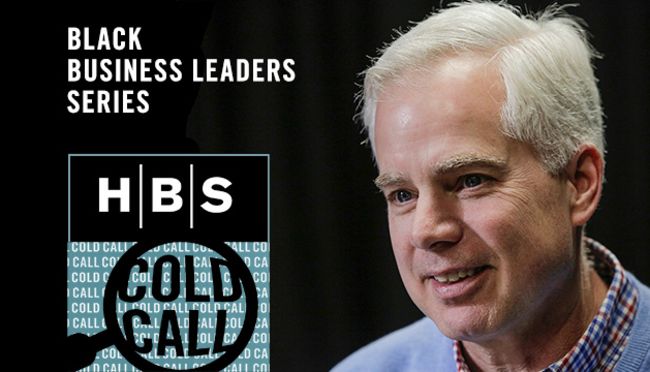
- 16 Feb 2017
- Cold Call Podcast
Black Business Leaders Series: A Remarkable Legacy of Firsts, Maggie Lena Walker
Maggie Lena Walker used her leadership of the Independent Order of St. Luke to form a bank, newspaper, and department store—all in the stronghold of the Confederacy. Tony Mayo discusses his case study about this pioneering African American woman. Open for comment; 0 Comments.
- 17 Oct 2016
- HBS Case
Business Solutions That Help Cut Food Waste
Up to 40 percent of food grown in the United States for human consumption is wasted. But solutions are starting to come together from retailers, farmers, academics, policy makers, and social service organizations, according to José Alvarez. Open for comment; 0 Comments.
- 21 Jan 2013
- Research & Ideas
Altruistic Capital: Harnessing Your Employees’ Intrinsic Goodwill
Everyone comes to the table with some amount of "altruistic capital," a stock of intrinsic desire to serve, says professor Nava Ashraf. Her research includes a study of what best motivates hairdressers in Zambia to provide HIV/AIDS education in their salons. Closed for comment; 0 Comments.

Sustaining a Legacy of Giving in Turkey
Özyeğin Social Investments was founded by Hüsnü Özyeğin, one of Turkey's most successful entrepreneurs, with a focus on education, health, gender equality, rural development, and disaster relief in Turkey. The company and the Özyeğin family have spent decades serving and improving communities in need. Their efforts led to the creation of one of Turkey’s top universities, the establishment of schools and rehabilitation centers, post 2023 earthquake humanitarian shelter and facilities, nationwide campaigns, and an internationally recognized educational training initiative for young children, among other achievements. Harvard Business School senior lecturer Christina Wing and Murat Özyeğin discuss how the company is a model for making a significant impact across multiple sectors of society through giving and how that legacy can be sustained in the future, in the case, “Özyeğin Social Investments: A Legacy of Giving."